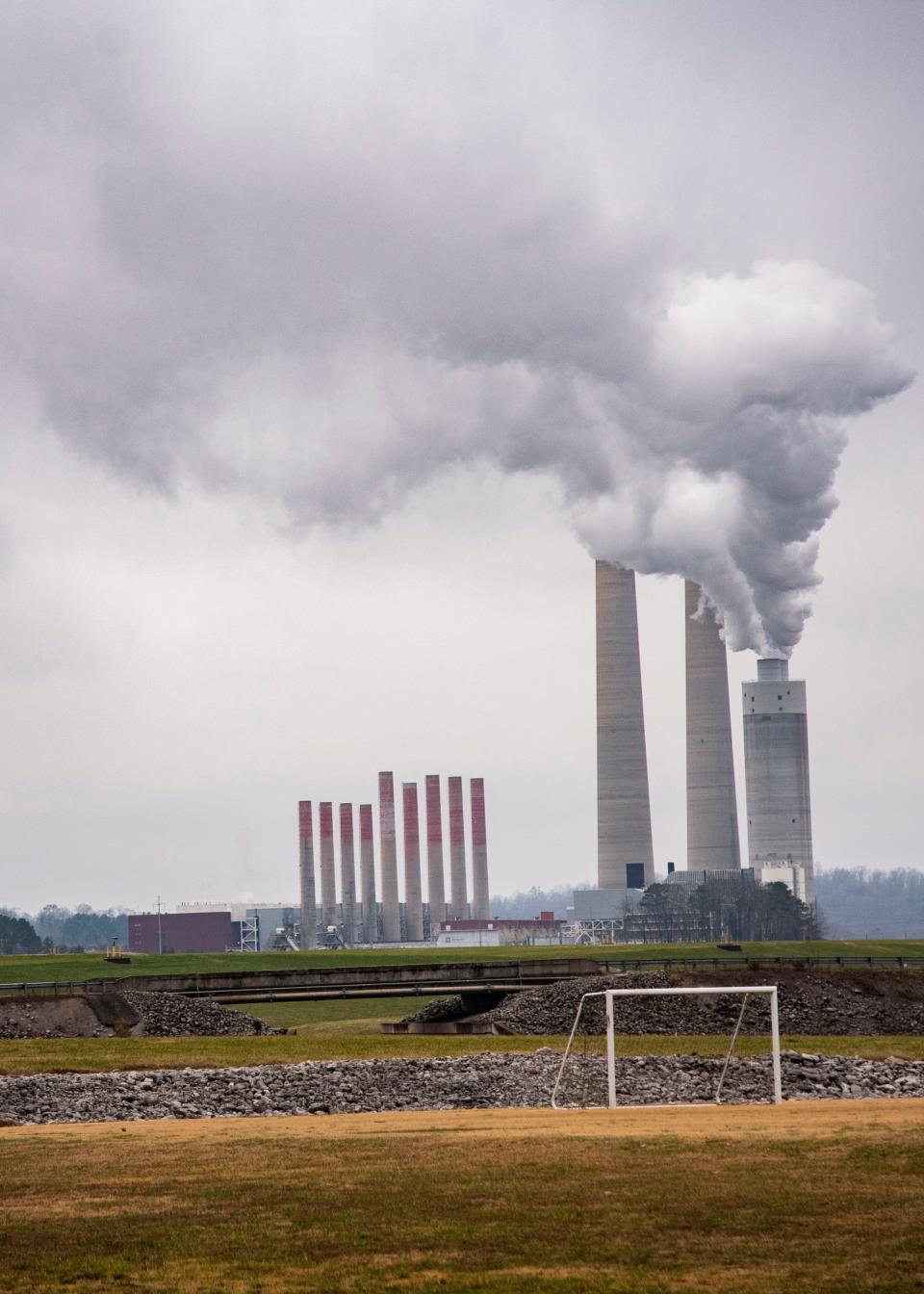Ninety years after its founding, it’s time TVA became a national leader again | Opinion
May marked the Tennessee Valley Authority’s 90th anniversary of its founding, an occasion that offers a prime opportunity for the federal utility to get back to its roots as a national leader.
The Tennessee Valley Authority was founded to tackle one of the most critical problems of the 1930s: poverty in the rural South. When President Franklin Roosevelt signed the TVA Act, only 3% of Tennessee farms had electricity, and the average yearly income in the Tennessee Valley was just $168 — roughly half of the national average.

The newly-created federal utility had a lofty mission to become a national leader in technological innovation, low-cost power and environmental stewardship, and TVA met the challenge head-on.
Now, 90 years later, we face another critical problem with climate change, the effects of which are already being felt by communities across the Tennessee Valley. Temperatures are rising, droughts are longer, flooding is more common and storms are more extreme.
But this time, instead of confronting the problem, TVA is dragging its feet and, in fact, making decisions that will make the crisis even worse.
Related: Tommy Johnson, one of the Kingston cleanup workers who sued over coal ash exposure, dies
The utility recently announced plans to replace the Kingston Fossil Plant with a plant powered by natural gas, which is also a polluting fossil fuel. The proposed plant would pump out 1.75 million tons of climate-warming greenhouse gases each year for decades to come, well beyond the federal government’s deadline to decarbonize the power sector in 2035.
Retiring the Kingston Fossil Plant — one of the dirtiest power plants in TVA’s fleet and the site of the largest coal ash spill in U.S. history — is long overdue. But recklessly swapping one polluting fossil fuel for another is a major step backward.
Hear more Tennessee voices: Get the weekly opinion newsletter for insightful and thought-provoking columns.

Even worse, the proposed Kingston Gas Plant is just one piece of TVA’s multi-billion-dollar gas buildout. Earlier this year TVA finalized plans for another large gas plant in Cumberland City and is also building new gas plants in Alabama, Kentucky and Johnsonville, Tenn.
The proposed gas conversion at Kingston will not only lock in decades of additional climate pollution, it also threatens the federal utility’s mission to provide low-cost power to its 10 million customers.
Fossil-fuel prices are volatile, and TVA passes those fuel costs on to its customers. That means Tennessee Valley families end up paying unpredictable and often expensive power bills, regardless of TVA’s claims about keeping base rates low. And that’s on top of footing the 10-figure price tag for new gas plants and pipelines.
This isn’t some far-off prediction — it’s already happening. Last summer, TVA increased fees for customers to account for rising methane gas prices. The added fees raised monthly power bills by as much as 40% during the hottest months of the year.
But clean energy choices — like solar power and batteries — don’t have fuel costs. In many cases, investing in renewable technology is already more cost-effective than building new gas plants and pipelines. And pairing renewables with energy efficiency and other demand-response options can lower power bills for customers across the region. Adding clean energy to the power grid would also make it more reliable and resilient in the face of extreme storms, like the winter storms last December that caused fossil-fuel plants to malfunction and led to rolling blackouts.
TVA was founded to be a national leader. Now, as we face the mounting climate crisis, it’s time for it to start acting like one again. To do that, it needs to scrap its dirty gas plans and instead make meaningful investments in cleaner and cheaper power options that are available right now.
Amanda Garcia is director of the Tennessee Office of the Southern Environmental Law Center.
This article originally appeared on Knoxville News Sentinel: Opinion: It’s time for TVA to become a national leader again

